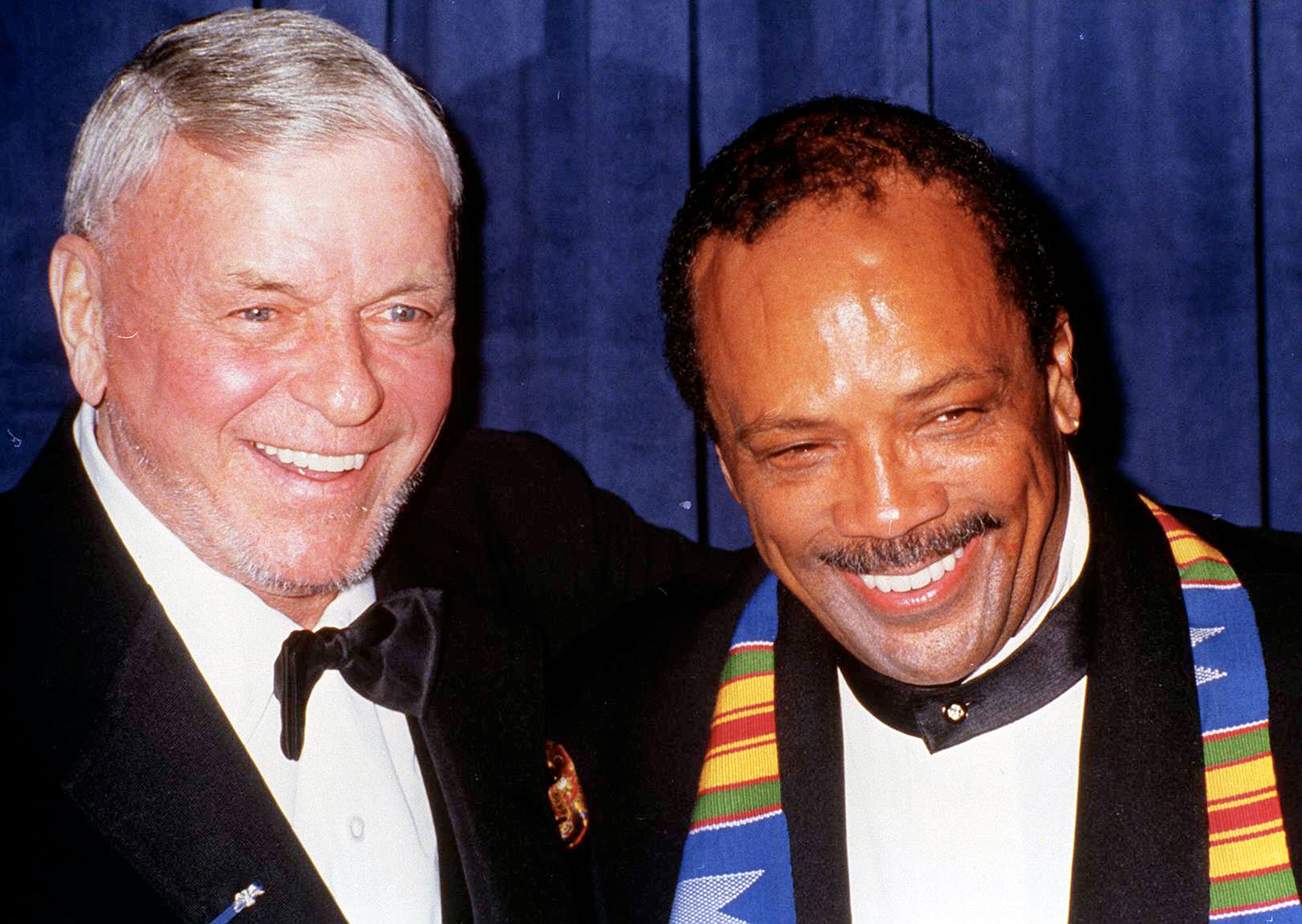Quincy Jones, music titan who worked with Sinatra and Michael Jackson, dies aged 91
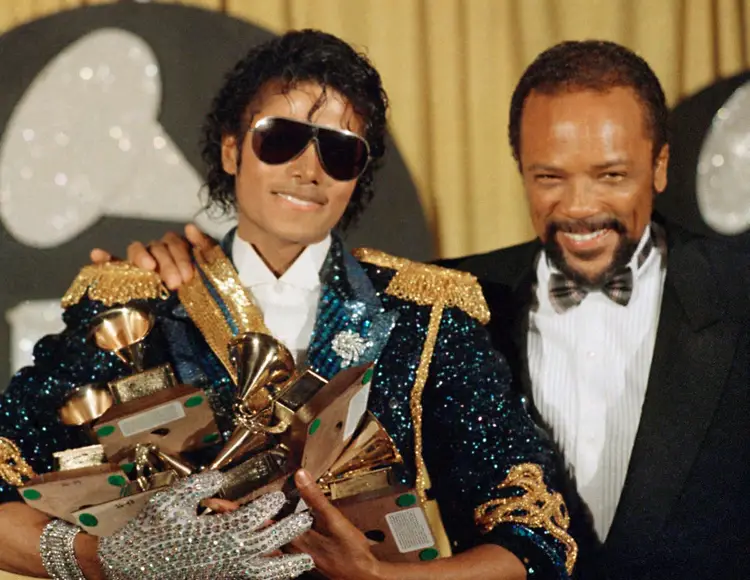
Subscribe To Roisin O'Connor's Music Newsletter
Subscribe To Our Free Now Hear This Newsletter!
Subscribe To Our Free Now Hear This Newsletter!
I’d like to receive emails with news about promotions, events, and updates from The Independent. Please take a look at our privacy policy.
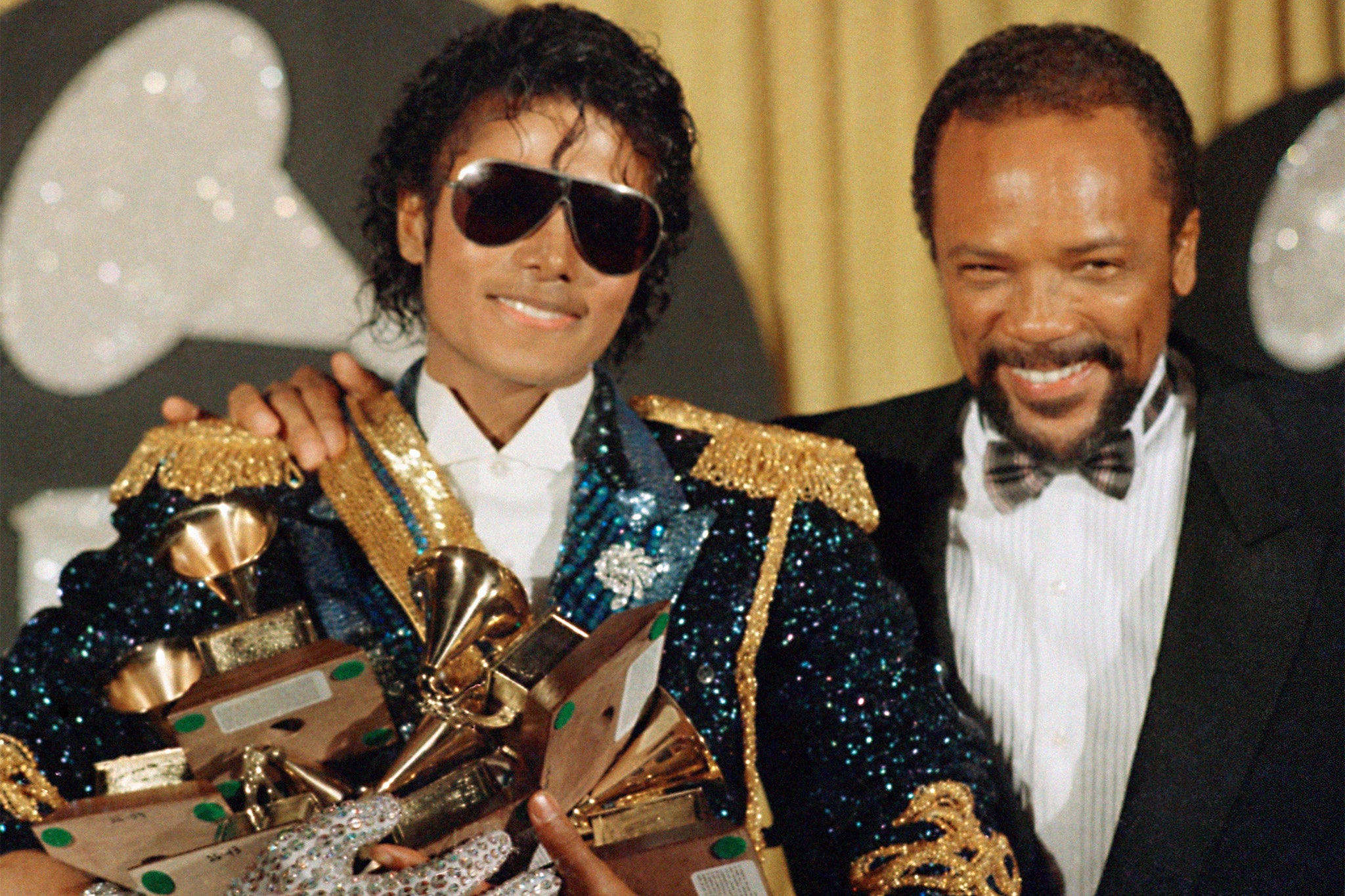
Quincy Jones, the groundbreaking musician, record producer, and prominent figure in American entertainment, has passed away at the age of 91.
His publicist, Arnold Robinson, announced that he died last night at his residence in the Bel Air neighborhood of Los Angeles, with his family by his side. The cause of death has not been disclosed.
“Tonight, with heavy yet grateful hearts, we want to announce the passing of our beloved father and brother, Quincy Jones,” the family stated, which includes his daughter Rashida Jones, known for her role as Karen Filippelli on The Office. “While this is an immense loss for us, we choose to honor the remarkable life he led and recognize that there will never be anyone else quite like him.”
The iconic producer, celebrated for securing 28 Grammy Awards (making him the third most nominated artist, trailing only Beyoncé and Jay-Z), had a remarkable career that lasted over seventy years. Throughout his life, he collaborated with a wide array of artists, including Michael Jackson, Frank Sinatra, Count Basie, and Celine Dion.
Jackson created the albums Off the Wall, Thriller, and Bad, which contributed to his status as the most successful pop artist ever. He composed music for legendary jazz figures like Count Basie, worked on numerous film soundtracks, and even played trumpet in Elvis Presley’s band at one point. Throughout most of the Eighties and Nineties, it was almost certain that any music lover had at least one album featuring Jones's work in their collection.
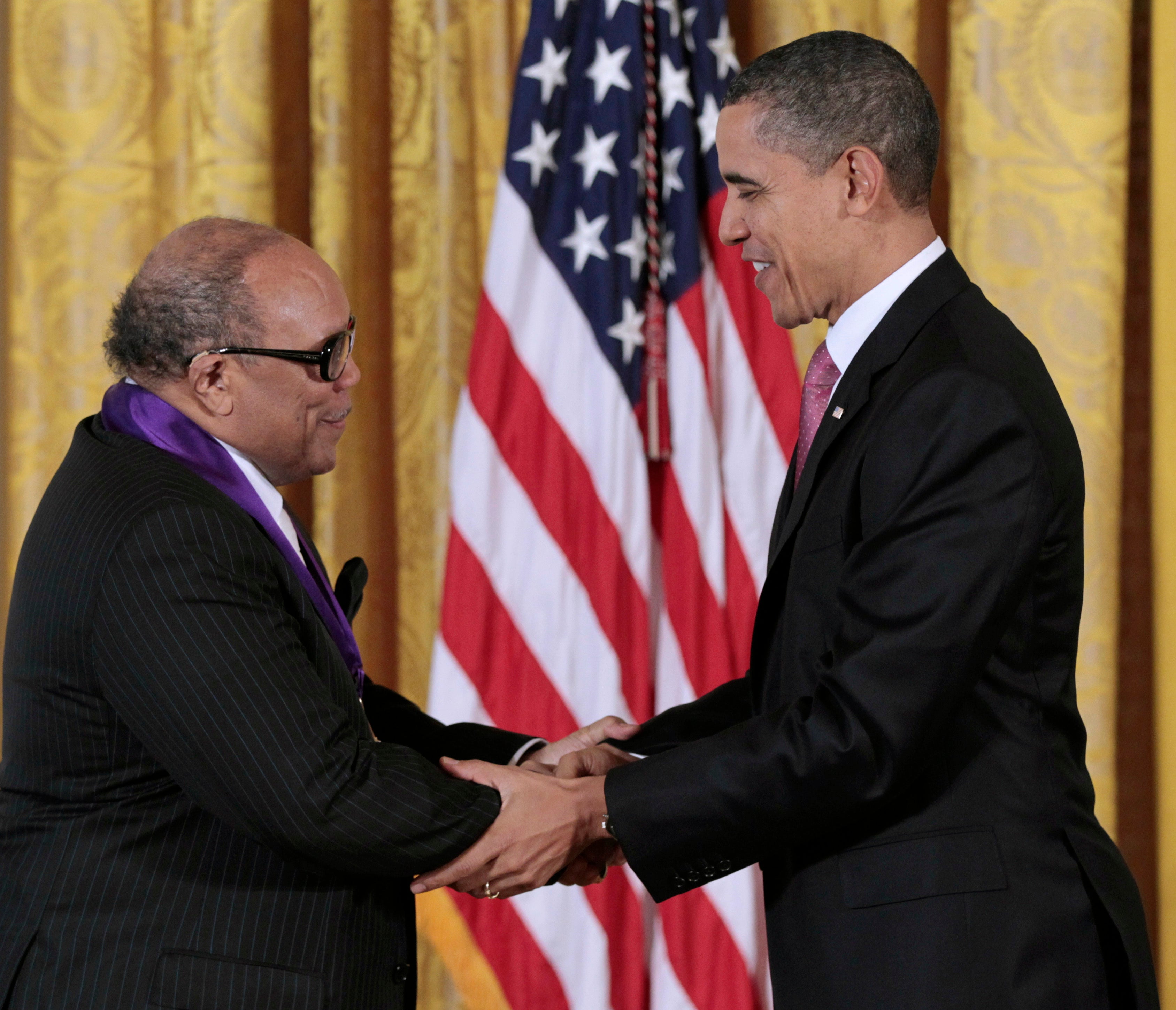
Jones’s father was the child of a Welsh plantation owner and one of his enslaved women, while his mother came from a lineage of slave owners as well. Jones grew up in Chicago, spending time with gangs in the South Side. His first exposure to music came from a neighbor who played the piano, inspiring him to start playing at the age of seven, along with influence from his mother’s singing.
Following his parents' divorce, he relocated to Washington state with his dad, where he started learning to play the drums and various brass instruments as a member of a high school band. At just 14, he had a short stint playing in a band with a young Ray Charles in Seattle. He later pursued music studies at Seattle University. During the 1950s, he toured with prominent jazz bandleader Lionel Hampton and had the opportunity to meet influential figures such as James Baldwin, Josephine Baker, and Pablo Picasso.
Following a challenging European tour of his jazz musical, Jones found himself in significant financial trouble as he tried to pay off the band's costs. He later shared with the LA Times that he had contemplated suicide but came out of the experience with valuable lessons. With support from Irving Green, the president of Mercury Records, he was able to recover from his setbacks. Green not only provided him with a personal loan but also offered him a position as the label's music director. During his time there, Jones collaborated with renowned artists such as Peggy Lee, Ella Fitzgerald, Dinah Washington, and Sammy Davis Jr. as a producer and arranger.
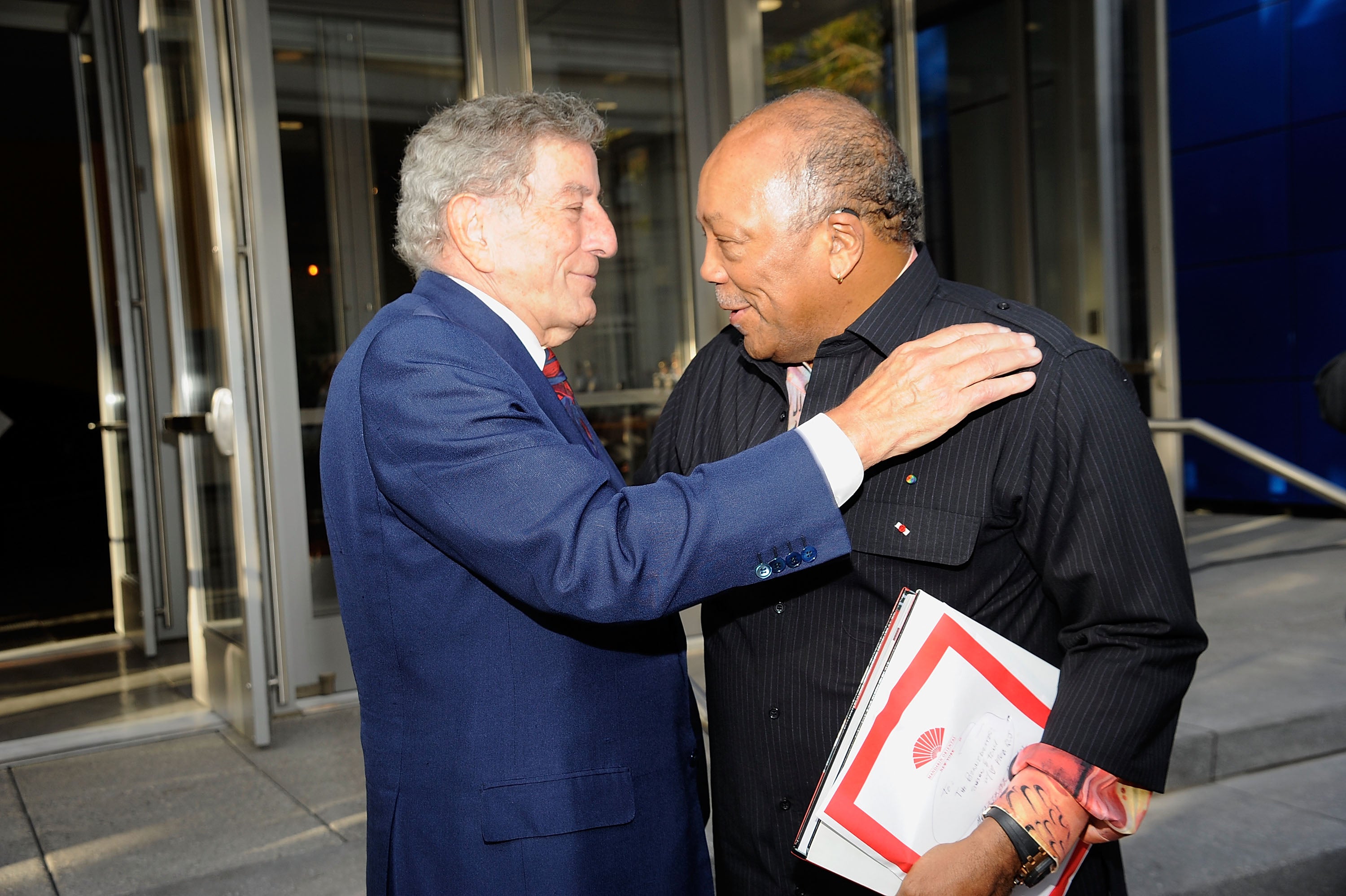
He rubbed elbows with celebrities and world leaders, including film stars, presidents, and influential donors. He composed music for films like The Italian Job and produced Steven Spielberg's The Color Purple, which received 11 Oscar nominations in 1986. This period marked one of Jones's most productive decades, during which he played a key role in shaping Michael Jackson's career, turning him from a former child star of The Jackson Five into the "King of Pop" with chart-topping hits like "Billie Jean," "Thriller," "Don't Stop 'Til You Get Enough," "Bad," and "Beat It."
Experience limitless access to 100 million songs and podcasts without any ads through Amazon Music.
Register today for a complimentary four-month trial (just three months for those who aren't Prime members).
Experience uninterrupted access to 100 million songs and podcasts without ads through Amazon Music.
Register today for a free trial that lasts four months (three months for those who are not Prime members).
By blending disco, funk, rock, pop, R&B, and jazz, the duo propelled Jackson into the spotlight as a music legend and inspired countless artists in the years that followed. In 1983, "Thriller" sold over 20 million copies, solidifying its status as one of the best-selling albums ever.

"In the event that an album flops, the usual response is to blame the producer," Jones stated in a 2016 interview with the Library of Congress. "So, if an album is successful, the credit should go to the producer as well. The songs don't magically come together; it takes a producer with the right expertise and talent to turn a vision into reality."
In his 2001 autobiography titled "Q," Jones detailed an impressive list of accolades that spanned 18 pages. Among these distinctions were France's prestigious Legion d'Honneur, the Rudolph Valentino Award presented by Italy, and a special honor from the Kennedy Center recognizing his significant impact on American culture. Additionally, he was the focus of a 1990 documentary called "Listen Up: The Lives of Quincy Jones," and in 2018, his daughter Rashida Jones created a film about him.
When The Guardian asked him about the artist who had left the biggest impression on him throughout his extensive career, he quickly listed some of the most celebrated names in music: “It’s just a short list. Oscar Peterson, Charles Mingus, Roland Kirk, Dizzy Gillespie, Miles Davis, Clifford Brown, Sarah Vaughan, Billie Holiday, Ella Fitzgerald, Louis Armstrong, Kenny Clarke, Lionel Hampton, Duke Ellington, Tony Bennett, Diana Ross, Lena Horne, Ray Charles, Frank Sinatra, Gene Krupa, Louis Jordan, Dinah Washington, Andy Williams, Billy Eckstine, Charles Aznavour, Aretha Franklin... It’s just crazy, man.”

He explained that his elaborate method of expressing it was to convey that making a choice was simply not feasible: “It’s not fair to compare Lesley Gore to Frank Sinatra, or Michael Jackson to Ray Charles.”
He had a tale for everyone and everything, from the incident when Jackson's snake, Muscles, coiled around Jones's leg in the recording studio to the moment his daughter got bitten by Bubbles, the King of Pop's chimp.
He once remarked that he had never witnessed anyone like Sinatra perform live: “He was like a sorcerer, as if he came from another world. He truly had it figured out. It was the most enchanting experience I've ever had,” he shared in a 2014 interview with The Guardian. He also referred to Sinatra as “one of the best friends” he’d ever known and mentioned that he wears the singer’s ring, which has his family crest from Sicily: “I’ve never taken it off.”
Several of his top collaborators evolved into lifelong friends. He maintained a close bond with Sir Michael Caine, with whom he collaborated on the iconic 1960s film, The Italian Job, often celebrating birthdays and other special events together. In 2006, Caine awarded Jones a lifetime achievement honor at the sixth annual BBC Radio Jazz Awards, where the musician embraced his beginnings by leading a big band in performances of his own arrangements.
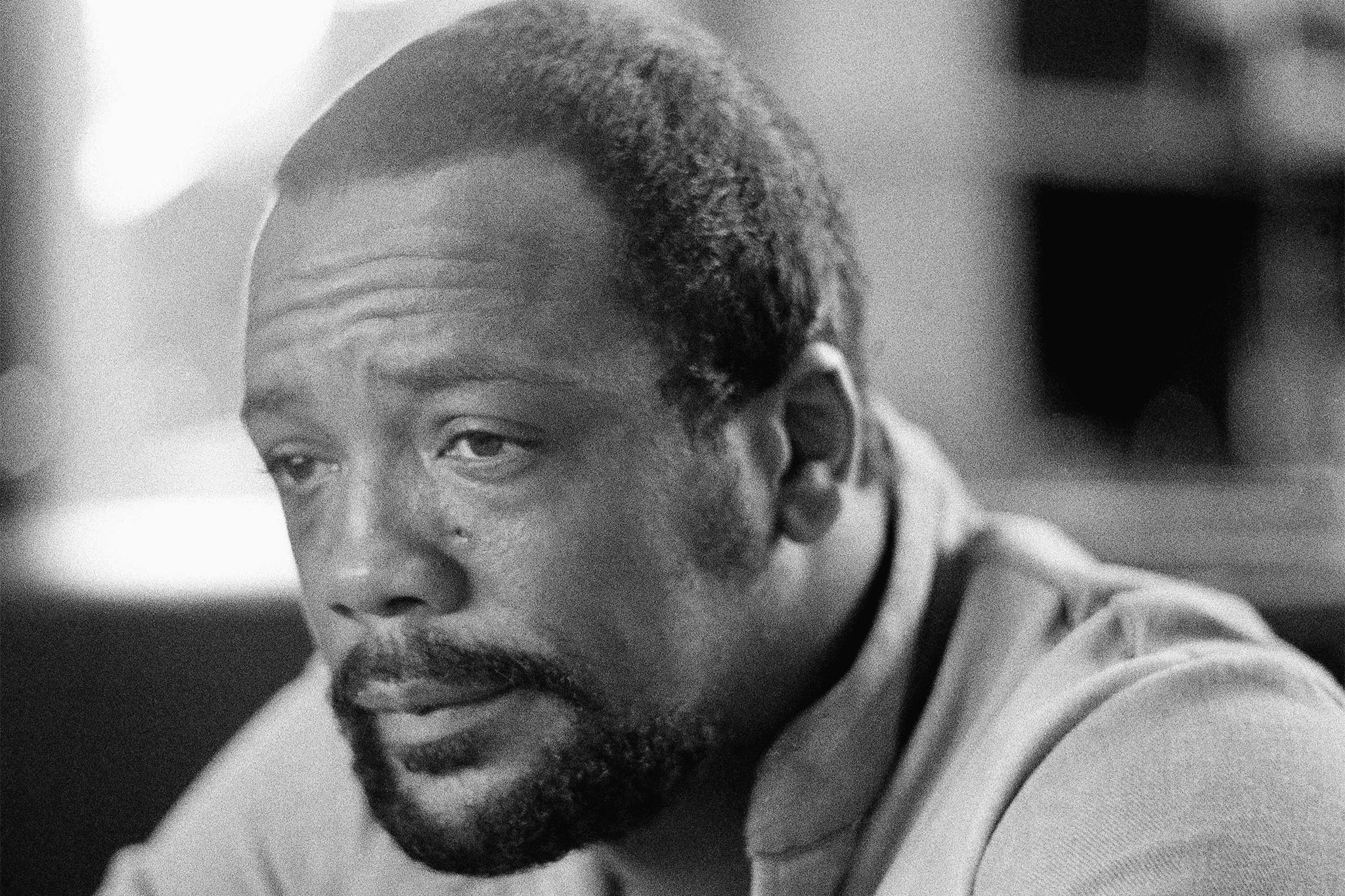
"Jones shared with the audience, 'Jazz is to pop music what classical music is to the broader music world.' He went on to predict that in four decades, musicians like Count Basie, Duke Ellington, John Coltrane, and Miles Davis will be regarded in the same light as Bach, Beethoven, and Stravinsky."
He got married three times. His first wife was his high school sweetheart, Jeri Caldwell, and they were together for nine years until 1966. They had a daughter named Jolie. His second marriage was to Ulla Andersson, with whom he had a son and a daughter. They were married for seven years before they split up. He then married Peggy Lipton, known for her role in Twin Peaks. Together, they had two daughters, one of whom is actress Rashida Jones, before they divorced in 1989.
Jones chose not to marry again, but he had two more children: Rachel with dancer Carol Reynolds and Kenya with actress Nastassja Kinski. He leaves behind seven children in total.
